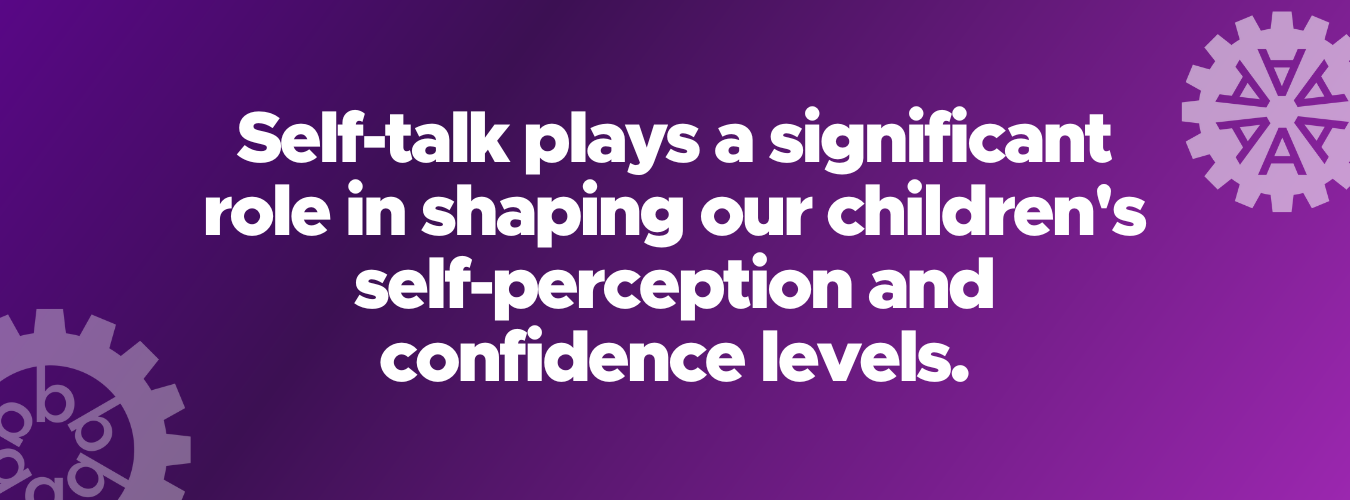Building Confidence in Kids: A Guide for Parents

Confidence is a crucial attribute that lays the foundation for success and happiness in life. As parents, one of our most important responsibilities is to develop and nurture confidence in our children.
It's not solely about boosting children's confidence to excel academically and feel good about themselves; it's about providing them with the self-assurance needed to navigate challenges, pursue their dreams, and thrive in a constantly evolving world.
Understanding Confidence in Children
Before diving into strategies for boosting confidence, it's essential to understand what confidence means in the context of children. Confidence isn't just about being outgoing or assertive; it's about believing in oneself, having a positive self-image, and feeling capable of facing challenges.
Signs of low confidence in children, in toddlers and young children at an early age can manifest in various ways, including avoiding new experiences or not feeling good enough, being overly self-critical, or seeking constant reassurance. The impact of low confidence on children's development can be profound, affecting their academic performance, social relationships, and overall sense of well-being.

Strategies to Boost Confidence
Encouragement and Praise:
One of the most powerful ways to boost a child's self-esteem and confidence is through encouragement and praise.
However, it's essential to be mindful of the type of praise we offer other children. Instead of generic statements like "good job," focus on specific praise that acknowledges the effort, progress, or unique qualities of your child.
Setting and Achieving Goals:
Teaching children to set and achieve goals not only builds their self-esteem and confidence but also instils valuable life skills. Help your child set SMART goals—specific, measurable, achievable, relevant, and time-based—and celebrate each milestone they reach along the way.
Encouraging Independence:
Allowing children to learn new things, make decisions and solve problems on their own fosters independence and self-confidence. Of course, it's crucial to offer guidance and support when needed, but giving children space to do new things and learn from their experiences is key to building confidence.
Teaching Resilience:
Failure is an inevitable part of life, but it's how we respond to failure that shapes our confidence. Encourage resilience by reframing failure as a learning opportunity and showing your child that setbacks are temporary roadblocks, not permanent barriers.
Promoting Self-Expression:
Every child is unique, and fostering their self-esteem and expression is essential for building confidence. Encourage creativity through activities that build self-esteem like art, music, or writing, and create a learning environment where your child feels comfortable expressing their thoughts, feelings, and ideas.
Building Confidence Through Activities
Engaging in certain activities can also help boost confidence in children. Participating in sports not only promotes physical health but also builds confidence, teamwork, and leadership skills. Encourage your child to try different sports and find one that they enjoy. Performing arts, such as theatre or dance, can help children overcome stage fright and develop confidence in front of an audience.
Similarly, engaging kids in public speaking activities can improve communication skills and self-confidence. Exploring interests outside of academics through clubs and hobbies allows children to build confidence while pursuing their passions.
Whether it's joining a robotics club with friends, learning to play a musical instrument or joining a sports team, extracurricular activities provide children with valuable opportunities for growth and self-discovery.

Modelling Confidence as Parents
As parents, we serve as role models for our children, and our behaviour influences their confidence levels. Demonstrate confidence in your abilities and decision-making processes. Show your child that it's okay to take risks, make mistakes, and learn from failures. Practice self-love and self-compassion, and teach your child to do the same.
Encourage your child to embrace their strengths, abilities and weaknesses and treat themselves with kindness and understanding. Open and honest communication fosters trust and confidence in parent-child relationships. Listen to your child's thoughts and feelings without judgment and provide guidance and support when needed.
Encouraging Positive Self-Talk
Self-talk plays a significant role in shaping our children's self-perception and confidence levels. Teaching our children to replace negative self-talk with positive affirmations is a powerful way to promote self-confidence and resilience.
Encourage your child to identify and challenge negative thoughts and low self-esteem, and replace them with affirming statements such as "I am capable," "I am worthy," or "I am confident and I can do this."
By cultivating a habit of positive self-talk, we empower our children to overcome self-doubt, face challenges with courage, and develop a strong sense of self-belief.
Positive self-talk not only enhances confidence but also fosters resilience, helping our children bounce back from setbacks and pursue their goals with determination, confidence and optimism.

Celebrating Progress
It's essential to acknowledge and celebrate even the smallest achievements in our children's lives. Whether it's mastering a new skill, completing a challenging task, or showing kindness to others, taking the time to recognise these accomplishments reinforces positive behaviour and boosts confidence.
Celebrating progress in school not only instils a sense of pride, effort, and accomplishment in our children but also encourages them to continue striving for more.
By celebrating their successes in school, no matter how small, we show our children that their efforts are valued and worthy of recognition, fostering a positive mindset towards school and a further sense of belief in their abilities.

Addressing Challenges and Concerns
Despite our best efforts, challenges like bullying, peer pressure, or academic struggles may arise. Teach your child strategies for handling these situations, such as assertive communication and seeking help from trusted adults. Encourage them to cultivate supportive friendships and build resilience in the face of adversity.
Boost Academic Confidence with NumberWorks’nWords
At NumberWorks’nWords, we offer personalised maths and English tutoring to help your child understand their syllabus and boost their confidence and results at school.
We know that each child learns at their own pace, which is why our tutors tailor their coursework to meet your child’s preferred learning style so they can study in an environment where they feel their best. Whether your child needs support for upcoming exams or more help transitioning to advanced classes, our centres can help prepare them for any aspect of their school careers. To get started book a free assessment today or find a centre near you.
Nurturing confidence in children is a lifelong journey that requires patience, understanding, and unconditional support. Remember, the journey to confidence begins with a single step—let's take that step together and watch our children soar.




